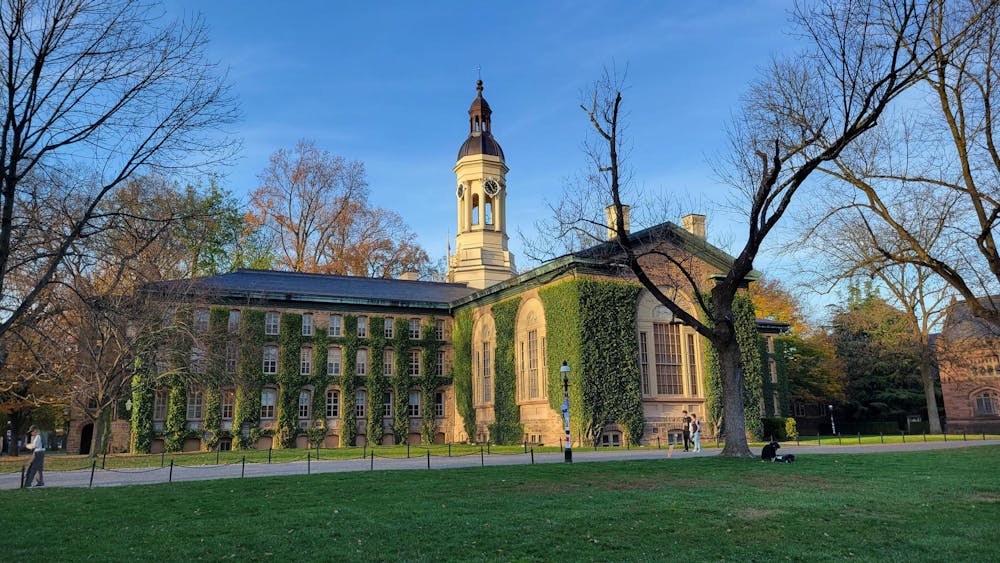In September, Duke University’s Pratt School of Engineering rebranded its diversity, equity and inclusion committee as the “Office of Culture and Belonging,” while their School of Medicine abruptly shuttered its DEI program. Harvard has pared down its diversity offerings under direct pressure from the Trump administration, most recently canceling an over 50-year-old program that encouraged minority students to apply to the university.
In the face of federal pressure threats, however, Princeton’s Office of Institutional Equity and Diversity has remained largely unchanged.
“Princeton University continues to believe that strong commitments to diversity and inclusion, broadly defined, support institutional excellence in teaching, learning and the workplace,” Vice Provost for Institutional Equity and Diversity Michele Minter wrote in an email to The Daily Princetonian.
“My office’s programming has not changed significantly; we and colleagues in other offices continue to look for ways to respond to community needs,” she wrote.
Emi Ren ’29 told the ‘Prince’ in an interview that the University’s continued diversity programming reinforced her decision to come to Princeton.
“I think, to me, it proves once again why I chose Princeton as a university to attend,” she said. “I chose Princeton because I feel like they care about their students more than some of the other universities I was admitted to.”
Princeton has seen a notable demographic shift this year, however. The share of students that identify as Black or African American dropped to five percent in the Class of 2029, the lowest of any entering class since 1968. The Class of 2029 was the second to be admitted following the Supreme Court’s ban on affirmative action in 2023. The racial makeup of the Class of 2028 was relatively similar to previous years.
“Working with partner offices, we try to make sure that everyone can connect to networks of support, find a sense of belonging, and feel confident that they will be treated fairly on campus,” Minter wrote.

Those partners, among many other offices, include the Gender and Sexuality Resource Center and the Carl A. Fields Center for Equality + Cultural Understanding.
“They are providing other programming that isn’t just about increasing the diversity of the student body, but also supporting and recognizing this in the existing student body. I think supporting that is a good thing,” John Ahona ’26 said.
Last spring, as executive orders targeting higher education began to stream out of the Trump administration, University President Christopher Eisgruber ’83 adopted an unofficial motto of “Keep Calm and Carry On,” based on a belief that court challenges and implementation delays would take time to impact the University.
In leaving the Office of Institutional Equity and Diversity largely unchanged this semester, the University has kept with its wait-and-see approach to federal challenges. The portion of Trump’s executive order threatening DEI programs in higher education has been blocked in federal courts since late April.

“I feel like [the University’s] commitment to upholding DEI in the face of pressure from the government really makes me feel like they actually do care about standing behind their words and standing behind their students,” Ren said.
“I think that Princeton standing with DEI, whether it be necessarily effective or not ... I still think that having it as a principle and still upholding the values and having institutions in place especially in the political climate is very valuable,” Matthew Shannon ’28 said.
While diversity programming has been maintained, there have still been tweaks. Many University webpages were updated in April to include links to a campus-wide “Diversity and Non-Discrimination” statement, which states “to maximize excellence, we seek talent from all segments of American society and the world, and we take steps to ensure everyone at Princeton can thrive while they are here.”
“Communications is a high priority. We are working to increase awareness and build skills through campus-wide messages and opt-in training opportunities,” Minter wrote.
Vitus Larrieu is a senior News writer for the ‘Prince.’ He is from Pensacola, Fla. and typically covers community activism, the state of higher education, and construction and architecture.
Oliver Wu is a News contributor for the ‘Prince.’ He is from Stony Brook, N.Y. and can be reached at oliver.wu[at]princeton.edu.
Please send corrections to corrections[at]dailyprincetonian.com.








